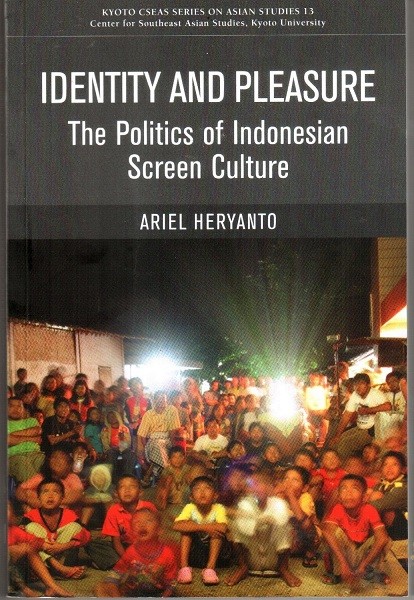by FADJAR I. THUFAIL

This is not a book about films. It is a book about how films and other forms of popular culture point to the places where interests, positions and desires come together, especially on issues of religious, ethnic and national identity.
The author, Ariel Heryanto, examines the complex and negotiated feelings of belonging to religious, ethnic and class identities in post-Suharto Indonesia. The book presents constructions of social identity and social belonging. These constructions are always transforming, incorporating, rebutting, subverting and balancing each other – to the point that it becomes impossible to talk about identity and identification as anything but heterogeneous and perpetually in flux.
The book takes a close look at the politics of film-making and film screening in Indonesia to demonstrate how cultural production is shaped by religious convictions, ideological struggles, traumatic memories and aspiring desires. Heryanto presents stories about how Indonesians turn to screen culture to help them reconsider what it means to be Muslim, Chinese, or Indonesian.
Heryanto brings a critical reading to a view common among media scholars that cultural products such as films are used to impart messages. He also interrogates the ‘cultural industry’ school’s claim that a cultural product possesses an aura, and the continuous reproduction and mass distribution of the product will distort the aura so the material no longer reflects what the original creator has intended. He shifts our attention from representation to production and suggests we investigate the ways in which the act of production enables or limits debates around politics, or allows exchanges of ideas between creators and critics.
The author dislodges the notion of ‘popular’ from its ideological baggage and situates it at the dynamic intersection of ideological and emotional politics. He argues that it is no longer possible to separate popular culture from high-culture. Regardless of class, producers and consumers share or contest their desires, visions of society and political aspirations within the same space. As such, the book offers a fresh and original perspective on the study of Indonesian screen culture; a critical alternative to structural or formal approaches that have dominated media studies until now.
The book shows how screen culture has become a site for Indonesians to debate religious politics, reflect on violent pasts, challenge state sovereignty, and question ethnic and gender identity. Fiction and documentary films in particular are sites where negotiations of identities, values, norms and visions of society take place and evolve.
Heryanto carefully reveals how various narratives, symbols, and production strategies are appropriated and applied by stakeholders in the media industry to navigate contentious religious and ethnic identities, historical justice, and modern sensibilities in post-New Order Indonesia.
Inside Indonesia for more
